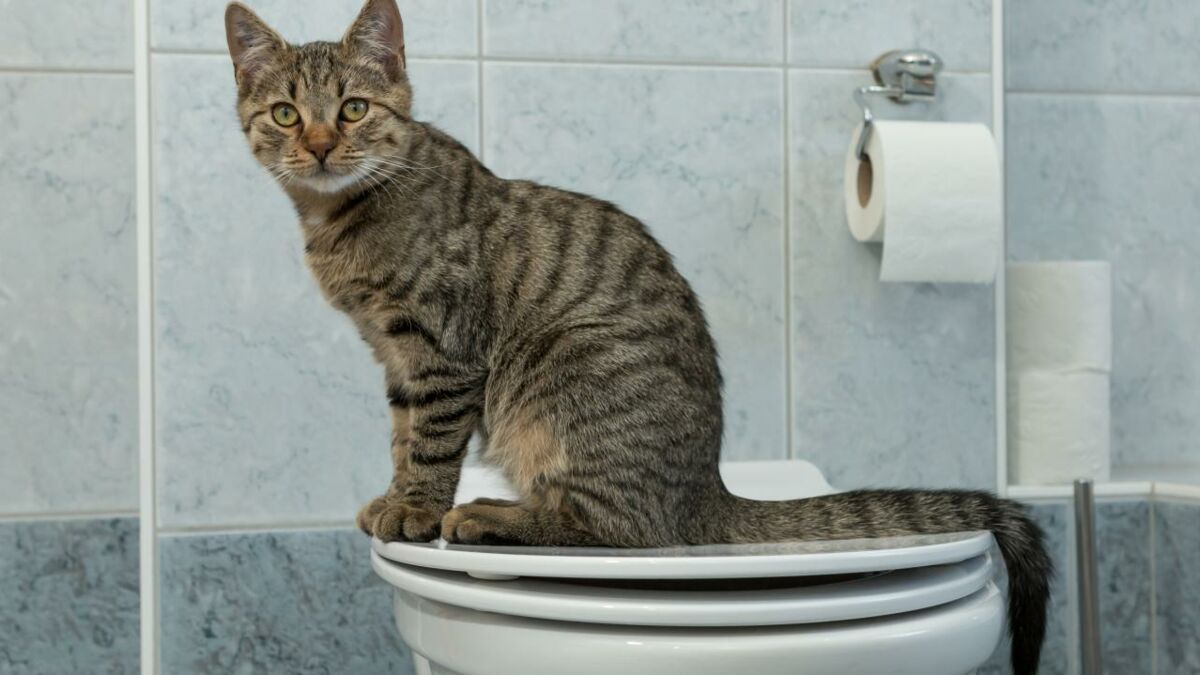Reasons Flushing Cat Poop Down Your Toilet Isn't a Good Idea - Advice for Proper Handling
Reasons Flushing Cat Poop Down Your Toilet Isn't a Good Idea - Advice for Proper Handling
Blog Article
Every person has their own individual idea in relation to Can You Flush Cat Poop Down The Toilet?.

Introduction
As feline proprietors, it's important to be mindful of just how we take care of our feline pals' waste. While it might seem practical to purge cat poop down the toilet, this method can have detrimental effects for both the atmosphere and human health.
Alternatives to Flushing
Luckily, there are more secure and more accountable methods to throw away feline poop. Take into consideration the following alternatives:
1. Scoop and Dispose in Trash
The most typical technique of throwing away cat poop is to scoop it right into a naturally degradable bag and toss it in the trash. Make certain to utilize a dedicated trash inside story and get rid of the waste without delay.
2. Use Biodegradable Litter
Go with biodegradable feline clutter made from materials such as corn or wheat. These trashes are eco-friendly and can be securely thrown away in the trash.
3. Hide in the Yard
If you have a yard, consider hiding pet cat waste in a designated area away from vegetable yards and water resources. Make certain to dig deep enough to stop contamination of groundwater.
4. Install a Pet Waste Disposal System
Purchase an animal waste disposal system specifically designed for pet cat waste. These systems make use of enzymes to break down the waste, lowering smell and environmental impact.
Health and wellness Risks
In addition to ecological worries, flushing feline waste can additionally pose health risks to humans. Pet cat feces might consist of Toxoplasma gondii, a bloodsucker that can trigger toxoplasmosis-- a possibly extreme disease, especially for expecting ladies and individuals with weakened immune systems.
Ecological Impact
Flushing cat poop introduces hazardous pathogens and bloodsuckers into the water, posing a substantial risk to aquatic ecological communities. These contaminants can negatively impact marine life and compromise water high quality.
Final thought
Accountable family pet possession prolongs past supplying food and sanctuary-- it likewise includes appropriate waste administration. By refraining from flushing pet cat poop down the commode and going with alternate disposal techniques, we can reduce our environmental impact and safeguard human health.
Why You Should Never Flush Cat Poop Down the Toilet
A rose by any other name might smell as sweet, but not all poop is created equal. Toilets, and our sewage systems, are designed for human excrement, not animal waste. It might seem like it couldn’t hurt to toss cat feces into the loo, but it’s not a good idea to flush cat poop in the toilet.
First and foremost, assuming your cat uses a litter box, any waste is going to have litter on it. And even the smallest amount of litter can wreak havoc on plumbing.
Over time, small amounts build up, filling up your septic system. Most litter sold today is clumping; it is made from a type of clay that hardens when it gets wet. Ever tried to scrape old clumps from the bottom of a litter box? You know just how cement-hard it can get!
Now imagine just a small clump of that stuck in your pipes. A simple de-clogger like Drano isn’t going to cut it. And that means it’s going to cost you big time to fix it.
Parasitic Contamination
Believe it or not, your healthy kitty may be harboring a nasty parasite. Only cats excrete Toxoplasma in their feces. Yet it rarely causes serious health issues in the cats that are infected. Most people will be fine too if infected. Only pregnant women and people with compromised immune systems are at risk. (If you’ve ever heard how women who are expecting are excused from litter cleaning duty, Toxoplasma is why.)
But other animals may have a problem if infected with the parasite. And human water treatment systems aren’t designed to handle it. As a result, the systems don’t remove the parasite before discharging wastewater into local waterways. Fish, shellfish, and other marine life — otters in particular — are susceptible to toxoplasma. If exposed, most will end up with brain damage and many will die.
Depending on the species of fish, they may end up on someone’s fish hook and, ultimately on someone’s dinner plate. If that someone has a chronic illness, they’re at risk.
Skip the Toilet Training
We know there are folks out there who like to toilet train their cats. And we give them props, it takes a lot of work. But thanks to the toxoplasma, it’s not a good idea.

We had been shown that write-up about How to Dispose of Cat Poop and Litter Without Plastic Bags through someone on our other web property. Liked our content? Please share it. Let someone else discover it. We enjoy reading our article about How to Dispose of Cat Poop and Litter Without Plastic Bags.
Call Today Report this page